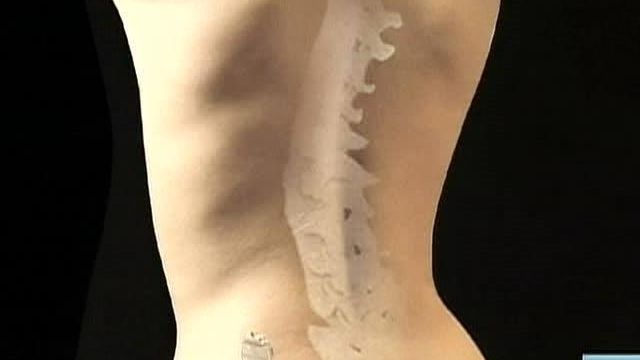Health Team
Implant Could Decrease Back Pain
Many people with chronic back pain have tried everything to find relief. Surgery doesn't always work, and pain medication has side effects and is often addictive. But there's another remedy that masks the pain without drugs.
Posted — UpdatedRALEIGH, N.C. — At least 25 percent of Americans suffer from back pain. For a fourth of them, it's a chronic problem.
Many people with chronic back pain have tried everything to find relief. Surgery doesn't always work, and pain medication has side effects and is often addictive. But there's another remedy that masks the pain without drugs.
More than 15 years ago, crippling back pain struck Stuart Cagle.
“I was in a lot of pain and it was a crusher, really emotionally and everything else,” he said.
He had spinal stenosis, a narrowing of the spinal canal so that vertebrae begin to pinch nerves. Surgery didn't work. Medication made him feel drugged, though it helped with the pain.
“But the problem with narcotic type drugs, after a while, you become immune to them. And where does it end?” Cagle said.
In 1994, Cagle got an implant in his hip, much like a pacemaker for the heart.
“But the technology is similar. You are providing electrical impulses,” said Rex Neurologist Dr. Shehzad Choudry.
Electrical leads are threaded up along the spinal cord. A remote control turns the spinal cord stimulator on when it's needed, according to Choudry.
The electrical impulses mask the pain signals going to the brain. Most patients describe it as a pleasant tingling sensation. Cagle called it life-saving.
“And I mean that quite literally, that it did save my life. I mean there's no doubt about it,” he said.
Cagle has the latest improvements in the stimulator, with better programming ability and more control over the signal intensity. He returned to enjoying life without the fear of pain.
Batteries in the spinal cord stimulators last an average of five to seven years, but Choudry said the procedure to replace the batteries only involves a same day outpatient visit.
• Credits
Copyright 2024 by Capitol Broadcasting Company. All rights reserved. This material may not be published, broadcast, rewritten or redistributed.





